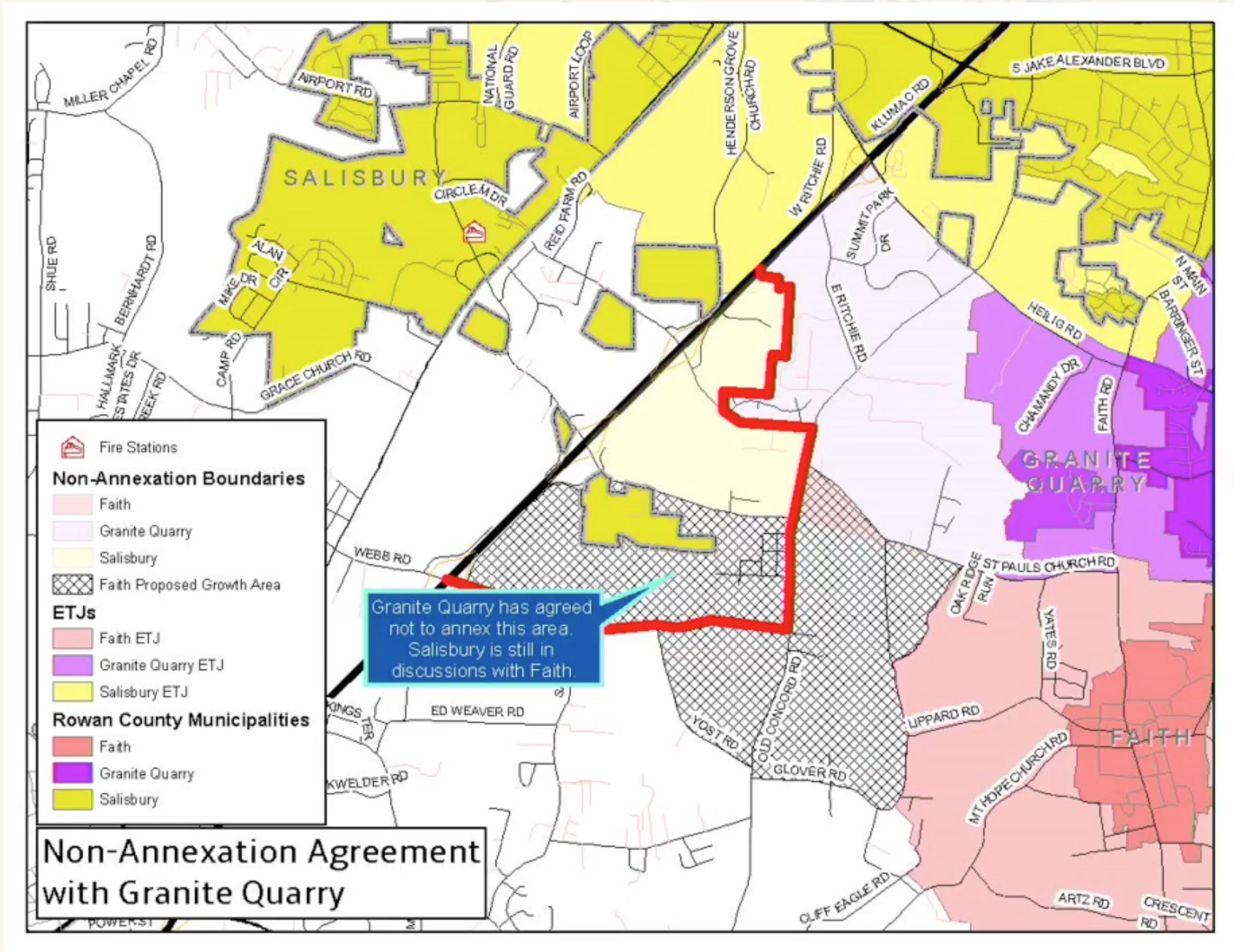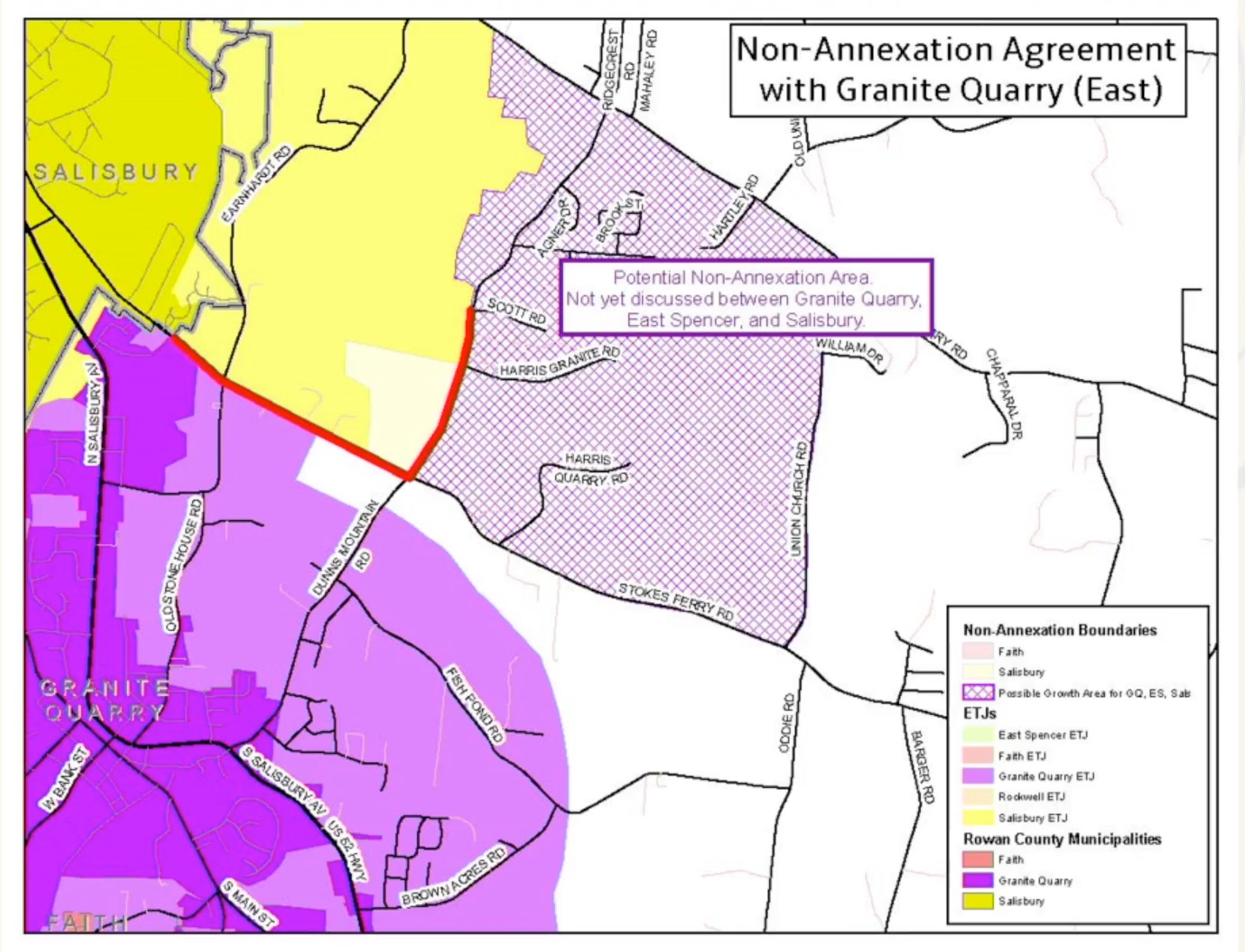Salisbury approves their portion of Granite Quarry non-annexation agreement draft
Published 12:05 am Thursday, September 21, 2023
SALISBURY — On Aug. 31, the Granite Quarry Board of Aldermen approved the non-annexation agreement between them and Salisbury. During their Sept. 19 meeting, the Salisbury City Council voted to endorse their part of said agreement. Rowan County has recently been proactive in getting municipalities to collaborate and discuss growth on a local level. After a 10-month period, Salisbury and Granite Quarry are almost done finalizing a non-annexation agreement.
Planning and Neighborhoods Director Hannah Jacobson says that the Rowan EDC is encouraging cities along the I-85 corridor to meet in order to “develop a more uniform zoning district that would help promote economic development, to make those development regulations a little bit more predictable and consistent between municipalities.”
Both Salisbury and Granite Quarry had city staff, city management, planning, city attorneys, the fire departments and Salisbury-Rowan Utilities contribute to come up with a fair agreement “based on public safety, fire response, planning principles, comprehensive plans, service delivery and state law,” City Manager Jim Greene said.
“Approval of these growth boundaries tonight does not imply any intention of Salisbury or Granite Quarry to proactively annex. Instead, this establishes logical boundaries to assist where and when and if development occurs. With these agreements, the EDC and developers know where and when to discuss and hear about requirements and services,” Greene said.
Topics staff considered while devising the boundaries were infrastructure availability, investment, fire response, transportation and extraterritorial jurisdiction (ETJ). Salisbury Fire Chief Bob Parnell assured to council that the department would be able to provide adequate service to the proposed areas.
“We know based on public safety, the boundary is as good as it could be,” Parnell said.
Regarding annexation, City Attorney Graham Corriher specified that no portion of a parcel of land can be closer to another city than it is to the annexing city. If council receives a petition to annex land that is closer to another city than it is to Salisbury, then Salisbury cannot annex it unless there is already an agreement in place. Corriher says this is measured by drawing a halfway line down the property in question and if any part of the parcel is on the other side of the line with another municipality, then it can not be annexed.
“It’s called a non annexation agreement because you, basically, create an area and Granite (Quarry) promises not to annex anything in that area, and then on the other side, Salisbury promises not to annex anything outside of that area. So, it’s a promise not to annex anything as much it is a promise to annex,” Corriher said.
One of the two proposed areas that make up the agreement is located east of I-85 and west of Old Concord Road. Its southern boarder is Webb Road, which represents how far away Salisbury can still administer city services. North of Peach Orchard Road and near East Ritchie Road, there are residential neighborhoods that will “very likely” never request annexation according to Jacobson. These helped trace the boundary between Salisbury and Granite Quarry’s growth areas.
One of the provisions Granite Quarry made was having interstate access at the corner of I-85 and Julian Road. Jacobson also mentioned land where Faith would like to examine growth with Salisbury, but those talks have not taken place yet.
The second area is near Stokes Ferry Road and Dunns Mountain Road. Salisbury has not spoken to East Spencer about expanding the boundary, but aims to at a later date.
All of the information that was presented during the meeting has been shared with Rowan County and the Granite Quarry Board of Aldermen. By authorizing the two maps, Salisbury and Granite Quarry will each have to hold a public hearing before a formal agreement is enacted. Salisbury will partner with other cities to devise similar agreements based on the work that has already been completed.






